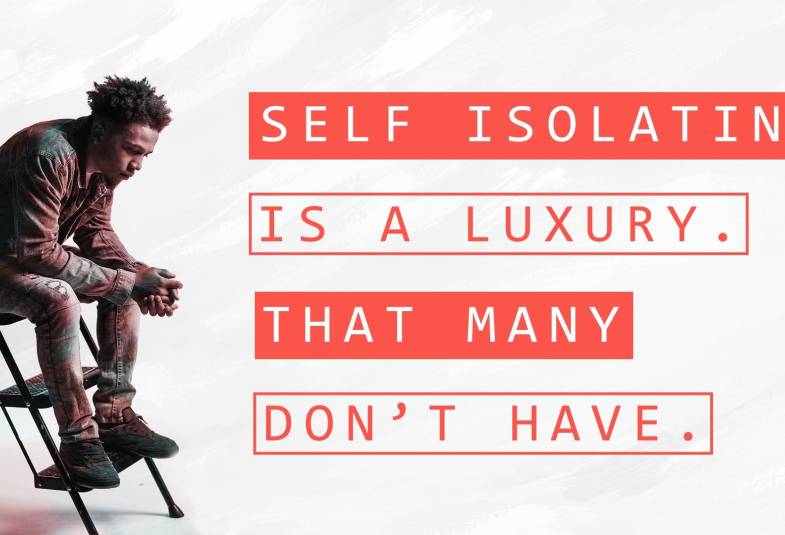26/03/2020
This blog is written by a member of the independent Commission. These views do not necessarily represent the views of the Archbishops' or the Church of England.

Image: Decode Homeless, Twitter
Homelessness is always a serious issue. The Archbishop of Canterbury’s Commission on Housing, Church and Community has been exploring the theological and social reasons why housing is central to a person’s ability to flourish. Right now, though, there’s an extra reason why dealing with the homelessness crisis is crucial.
Those who experience homelessness are three times more likely to experience a chronic health condition than the average member of the population, partly due to malnutrition and exposure to the elements. This means that getting COVID-19 could lead to serious issues for them. Because of this, homelessness charities have called for the government to recognise them as a ‘vulnerable group’, just like other groups with reduced immune systems, such as the over 70s.
These groups are being told to self-isolate where possible, but this is simply not possible without a place of your own. Whether you’re on the street, in a homeless shelter or hostel, sofa-surfing, moving from house to house, you don’t have a place where you’re not in contact with others. If you’re on the street, you’re unlikely even to be able to wash your hands. Every incidence of homelessness will exacerbate the public health crisis.
The Government understands this problem and has ensured landlords can’t legally evict tenants for three months. However, homelessness can’t be ended instantaneously. There have been reports that informal evictions are still happening. Plus, homelessness is often caused not by eviction, but rather by relationship breakdown.
Hostels and shelters are taking additional steps to keep people safe, and the Government has also provided £3.2 million emergency funding. But facilities are still under strain. Many charities rely on volunteers who themselves are in vulnerable groups, so support is down – sometimes by an estimated 30%. They have also seen a marked drop in donations. Many winter shelters traditionally shut at the end of March, reducing the provision available. Meanwhile, shared facilities are struggling to contain the virus. Councils are exploring the use of hotels and student halls, both of which are now largely empty.
What can you do?
Churches are being asked to keep their shelters open in the short term, until self-contained provision can be provided. Charities like Housing Justice are working with churches to support this. If you’re in this position, you should seek the guidance of the networks you’re part of, and refer to the advice offered by your denomination.
For individuals, there’s great variation in what different charities need. Reach out, and see how you can help best. We’ve heard that some may need additional food or cleaning supplies. Others are after thermometers, but need varies, and some may not be able to accept donations right now.
You might want to volunteer, but unfortunately some charities are suspending new starters for now. They aren’t able to support new joiners, meaning that they can’t keep people safe in the way that they’d like. Again, reach out to charities and see if they need your help.
Instead, charities are urging people to give their money. It’s always a good idea to donate to homelessness charities – whether local ones or national groups such as Shelter or Crisis – but this is vital right now, with falling incomes and high costs. The more we give, the more advice they can provide to prevent homelessness, the more support they can provide to keep people safe, and the more rooms they can fund.
Finally, prayer is key at this time. Just as we should keep those who are ill, and those who heal them in our prayers, prayer about homelessness is also important. People working in the sector are burning the candle at both ends, while those with no home are facing even more hostility than usual. Homelessness provision in this country has never faced anything like this, but with the Government, charities, businesses and individuals working together, it is possible to solve it.
This blog was originally posted on the website of the Joint Public Issues Team of the Baptist Union of Great Britain, the Church of Scotland, the Methodist Church and the United Reformed Church. We thank them for permission to post a revised version of it.